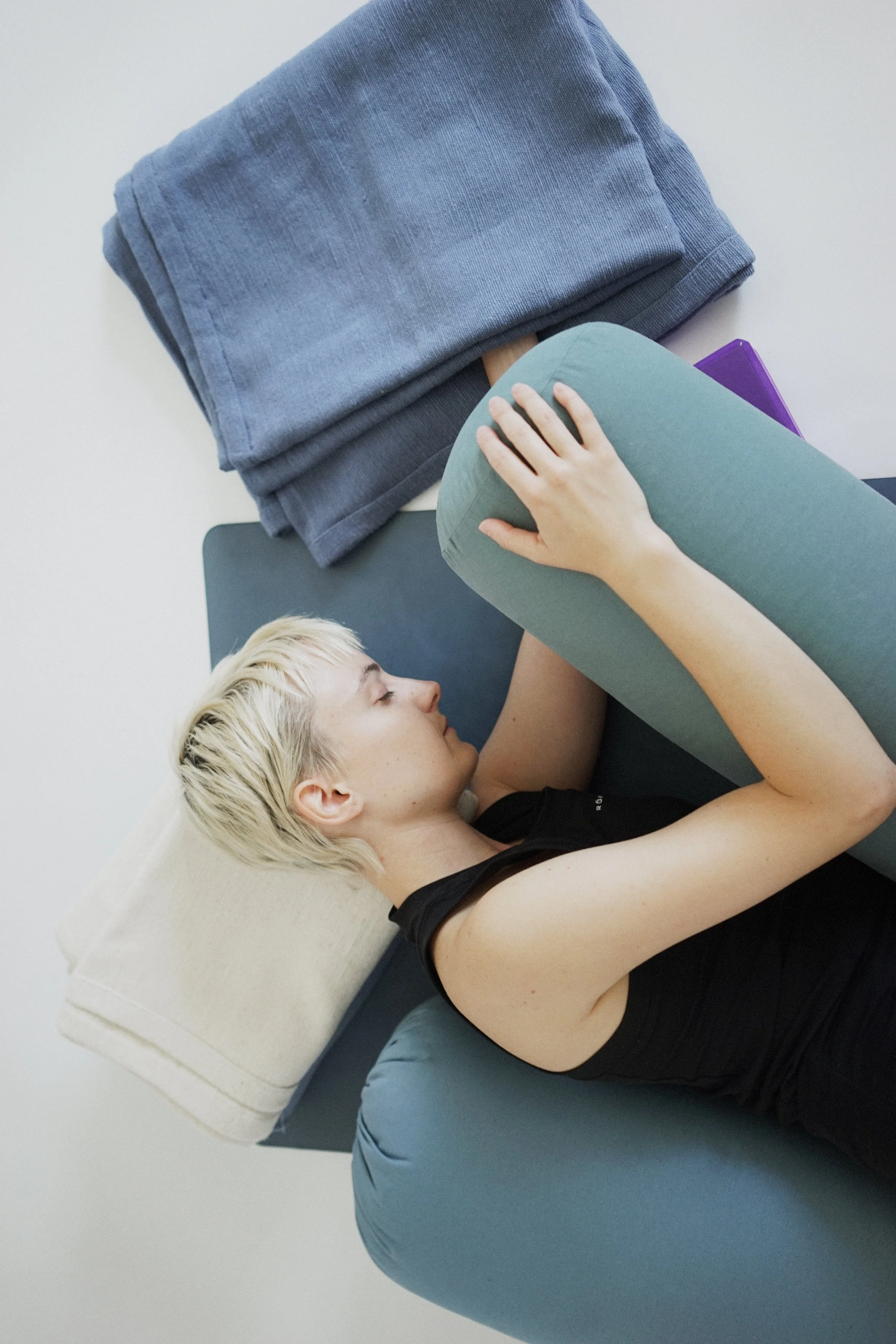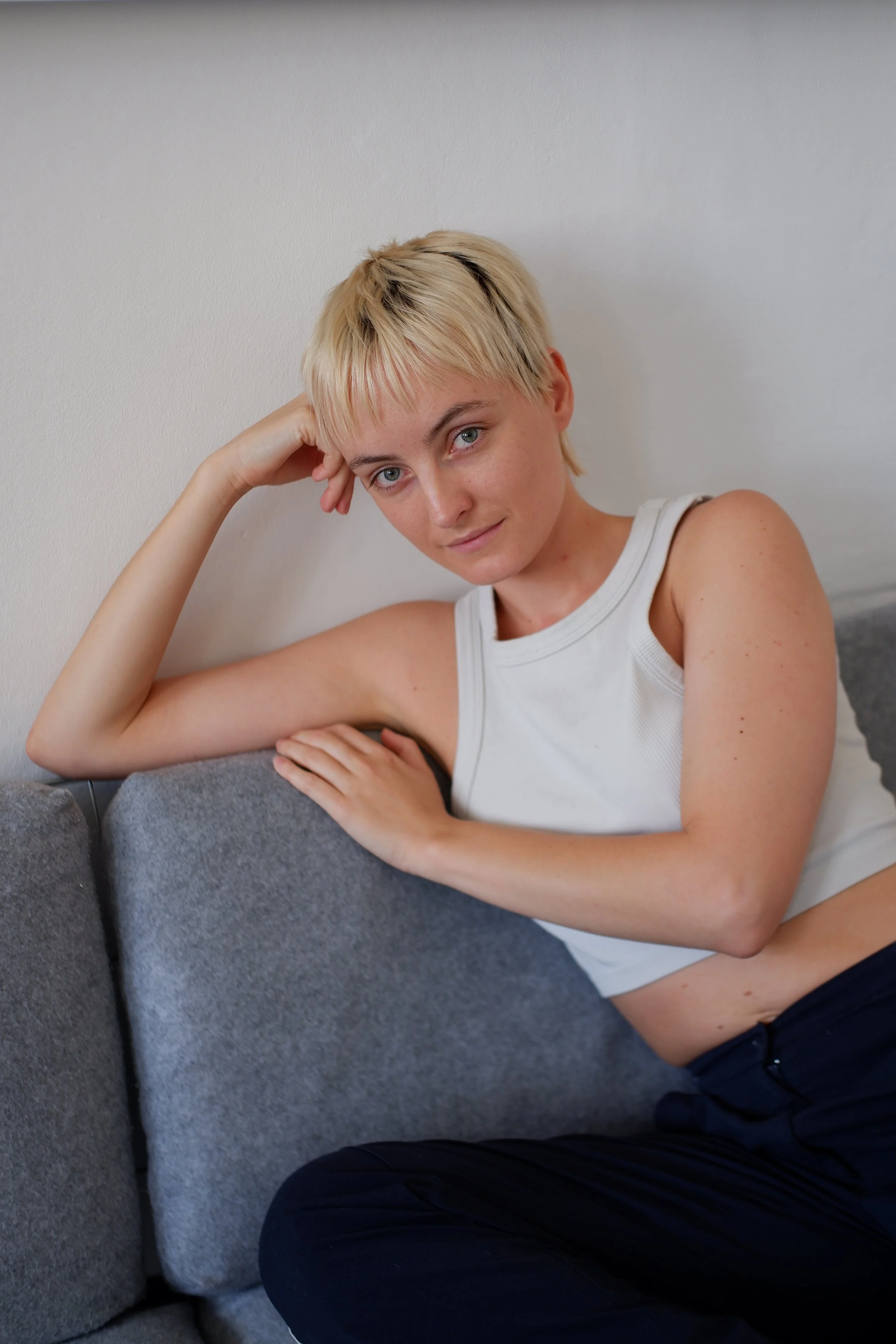20hr Restorative Yoga Teacher Training
November 14th - November 16th, 2025 • Berlin, Germany
Imagine being able to integrate the feeling of vacation and deep relaxation into your everyday life. Restorative Yoga makes this possible.
In this training, you'll learn how to teach Restorative Yoga mindfully and professionally. You'll learn how to tailor each posture to your individual needs and use props to ensure your participants feel fully supported and embraced.
In addition, you will gain a clear understanding of how Restorative Yoga can be used specifically to reduce stress, balance the nervous system, and promote inner balance.
Not only will you build in-depth knowledge of the background, effects, and principles, but you'll also develop the ability to design your own sequences and confidently teach them, whether in group sessions or one-on-one. In doing so, you'll train your eye to recognize your body's signals and precisely identify where additional support is needed to make deep letting go possible .
This advanced training combines the tradition of BKS Iyengar and Judith Hanson Lasater with modern insights from anatomy, physiology, and neuroscience. It is aimed at yoga teachers and practitioners who want to learn how to create spaces for sustainable relaxation and balance.
Language: German
"Restorative yoga is not about stretching.
It's about opening up to the present moment."
- Judith Hanson Lasater
Restorative yoga is a powerful tool for calming your nervous system
It involves consciously shifting from a state of high tension to a state of calm and relaxation. In a culture obsessed with consumerism and productivity, this is a radical act. Unlike Yin Yoga, this isn't about stretching, but rather about conscious relaxation. The body is supported in such a way that effort isn't necessary. This creates a space of stillness where stress melts away, clarity returns, and true relaxation becomes possible .
Who is this training for?
Yoga teachers who want to integrate Restorative Yoga into their classes or offer their own classes
For yoga teachers who want to expand their offerings to include regeneration and stress resilience
For people who long for a practice that provides them with regeneration and recovery
Therapists seeking a body-based approach to nervous system regulation
Training Content
Differentiation between Restorative Yoga and Yin Yoga
Basic Principles of Teaching Judith Hanson Lasater
Principle of the 4 qualities of a restorative practice
Practicing and teaching the most important Restorative Yoga asanas and their alignment
Modifications for individuals with special needs such as sleep disorders, trauma, and anxiety
Get to know different Savasana variations
The 3 stages of Savasana
Creative use of aids such as blankets, bolsters and straps
Basic anatomy of the nervous system
Physiology of relaxation
Special Pranayama exercises for Restorative Yoga practice
Restorative Yoga as a philosophy of life
Ethical aspects of teaching
About the training Certificate
The training is based on the standards of Judith Hanson Lasater. To receive the Restorative Yoga training certificate, you must submit a short report.
For this, participants are asked to practice a restorative yoga posture for 21 days and briefly document their own experience. In addition, a first Restorative Yoga sequence will be taught .
Early Bird Pricing (until 31.07): 440€
Regular Pricing: 480€
Training Price
What you will take with you
The ability to lead Restorative Yoga authentically and competently
A handout with illustrations and instructions
Concrete and scientifically based tools to influence the nervous system
The experience of three days of deep regeneration like a mini retreat
Schedule
Friday: 12.00 - 18.00
Saturday: 9.00-17.00
Sunday: 9.00-17.00
Meet your Teacher
Julia Schabenberger
M.Sc. Psychology • Systemic Family Counselor DGSF • Yoga teacher
“I did my first yoga training in Berlin in 2016, a few years after I discovered yoga. Since then, yoga has defined itself completely differently for me.
It is important to me to teach yoga in a down-to-earth and accessible way. The holistic approach of yoga helps me cope better with my everyday life and gives me a sense of balance.
I am always impressed by the diversity and depth of this practice. It is important to me to keep a curious and open view of things. At the same time, I am also critical and only teach what I myself consider to be useful.
It took me a long time to find my own teaching style—and I'm constantly developing it. I enjoy learning new things and often ask critical questions.”





